Top 10 Cloud Data Warehouse Tools
Summarize this article with:
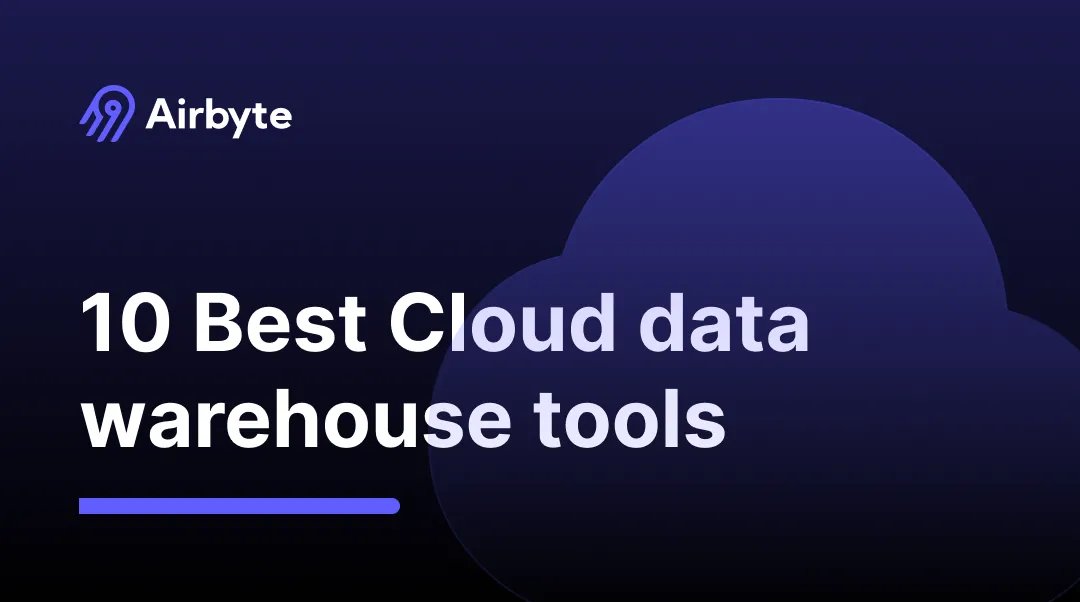
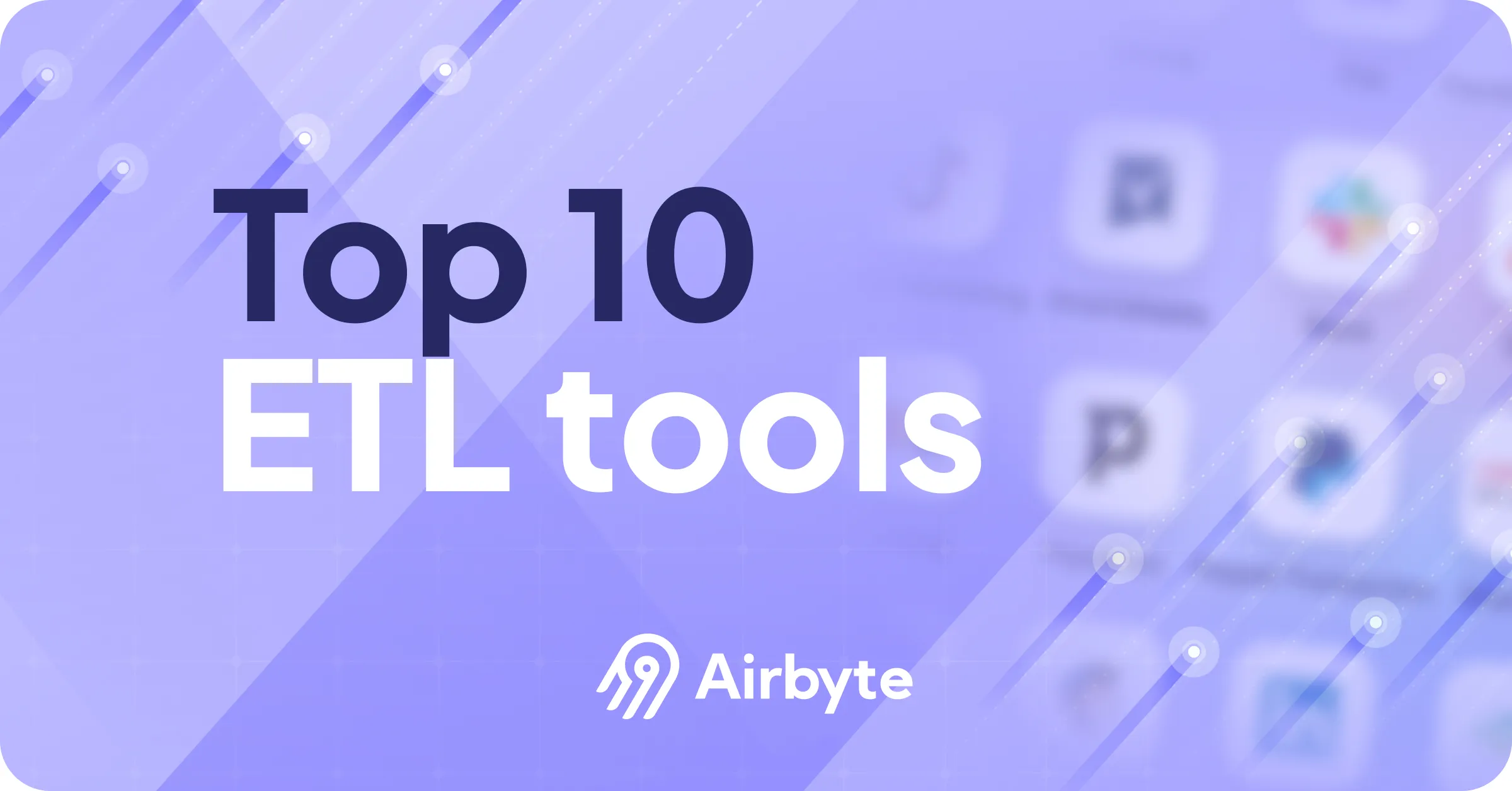
Cloud Data Warehouse Tools have emerged as indispensable assets for businesses seeking to unlock the full potential of their data. This summary encapsulates the essence of the article, which explores the top 10 cloud data warehouse tools, showcasing their capabilities and impact on modern organizations.
From scalability and flexibility to real-time analytics and robust security measures, these tools offer a comprehensive solution for organizations navigating the complexities of data management in today's digital landscape. By delving into the significance of cloud data warehouse tools and highlighting key factors to consider when choosing the right tool, this article provides valuable insights for businesses looking to harness the power of data.
With a focus on real-time data processing and analytics capabilities, as well as the importance of security measures in cloud data warehouses, this summary underscores the critical role these tools play in driving business insights and facilitating informed decision-making.
10 Best Cloud Data Warehouse Tools
Discover the leading cloud data warehouse tools revolutionizing data management and analytics.
1. Amazon Redshift
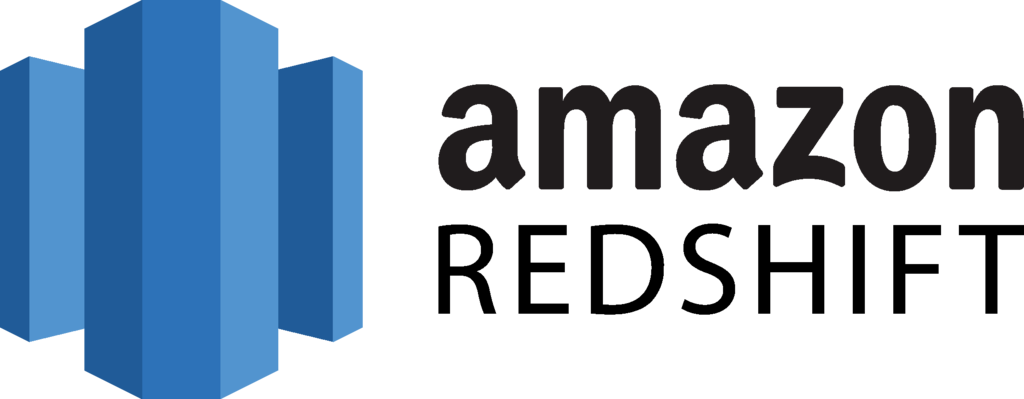
Amazon Redshift is a petabyte-scale cloud data warehouse that supports high-end data analytics and integrates seamlessly with other AWS automation tools. It facilitates SQL querying on structured data, much like Microsoft SQL Server, and provides lightning-fast performance without requiring extensive infrastructure investments.
Features
- Massively Parallel Processing (MPP): Redshift optimizes query performance by employing columnar storage, a hallmark of column-oriented DBMS, along with data compression and zone maps. The MPP architecture is used to distribute SQL operations across resources efficiently.
- Automated Backups and Provisioning: Administrative tasks like infrastructure provisioning, data backups, and replication are all automated by Redshift. There are customized options to fine-tune your settings according to the workload.
- Machine Learning: Redshift makes use of machine learning to maintain its high performance, irrespective of concurrent usage. It employs advanced algorithms to predict query run times and allocates them to the optimal queue for better processing.
- End-to-end encryption: Robust encryption systems, fault-tolerant nodes, and compliance with significant data security laws such as HIPAA, PCI, SOC, and more make Redshift a secured data warehouse tool for your business. These features ensure that privacy is maintained at every level.
2. Google BigQuery
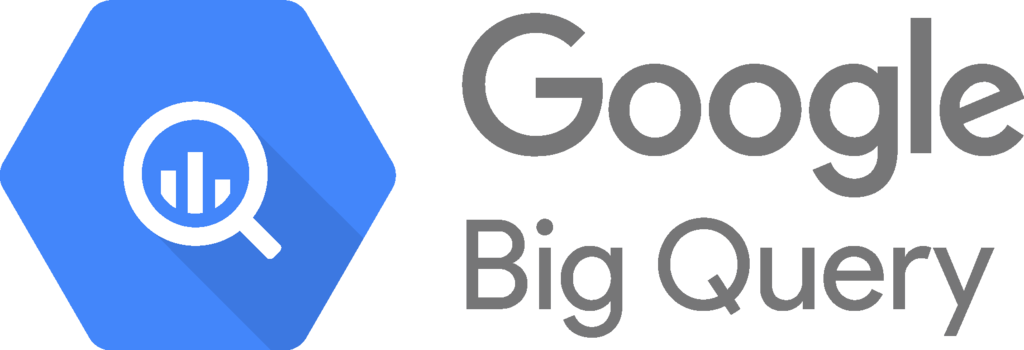
Google BigQuery is a cloud-native data warehouse that offers state-of-the-art automation tools to store and query vast amounts of data. It helps you execute super-fast SQL queries within seconds, providing real-time analytical insights. BigQuery is considered a cost-effective data warehouse tool where you can incorporate built-in machine learning functionalities to craft robust AI models.
Features
- Columnar Storage Format: This cloud data warehouse tool organizes data in tables consisting of rows and columns. It also offers comprehensive support for database transaction semantics (ACID).
- Geospatial Analysis: BigQuery offers functionalities related to location-based data mapping and analysis. This feature is especially useful when you are looking for new business avenues or want to improve data spread over multiple regions.
- Business Intelligence (BI) Engine: BigQuery’s BI engine is a high-speed, in-memory analysis service that expedites numerous SQL queries from various sources, including data visualization tools. Additionally, BigQuery supports unstructured data formats like JSON and Avro, making it a versatile choice for businesses dealing with diverse data types. You can also leverage clustering and partitioning techniques to enhance performance, especially with large datasets.
3. Snowflake

Snowflake is a cloud-based data warehouse tool that is renowned for its ease of use, agility, and adaptability. It operates within a comprehensive Software as a Service (SaaS) architecture and can be hosted on three different cloud platforms–Amazon Web Services (AWS), Google Cloud Platform (GCP), and Microsoft Azure.
Features
- Time Travel: Snowflake offers a distinctive feature where you can track data changes of tables and schemas for 90 days. You can also restore a few objects of any version within the given period.
- Automation Tools for Clusters: This data warehouse has auto-scaling and auto-suspend functionalities that enable clusters to be automatically started, stopped, or adjusted dynamically per your business demands.
- Zero Copy Cloning: The cloning feature in Snowflake is a swift and cost-effective way to generate copies of databases, schemas, and tables in near real-time. When the object is cloned, the entire storage content is not duplicated; only the metadata gets manipulated.
4. ClickHouse
.png)
ClickHouse is a high-performance, column-oriented database management system (DBMS) designed for real-time analytics on large volumes of data. It excels in handling structured and semi-structured datasets, offering lightning-fast query execution with minimal hardware requirements. Its open-source nature and scalability make it a popular choice for businesses that demand low-latency insights.
Features
- Columnar Storage and Vectorized Execution: ClickHouse stores data by columns rather than rows, enabling efficient compression and minimizing the amount of data read during queries. Combined with vectorized execution, this architecture ensures extremely fast analytical queries on billions of records.
- Horizontal Scalability: With support for distributed deployments, ClickHouse can scale horizontally across multiple nodes. This makes it suitable for processing petabyte-scale datasets while maintaining consistent performance.
- Real-Time Data Ingestion and Analytics: ClickHouse is optimized for real-time workloads, allowing for simultaneous ingestion and querying of fresh data. This makes it ideal for use cases such as monitoring, observability, and real-time dashboards.
- High Availability and Fault Tolerance: Replication, sharding, and automatic failover mechanisms are built into ClickHouse, ensuring continuous operations and protection against data loss.
- Rich Ecosystem and Integration: ClickHouse integrates seamlessly with popular data pipelines, ETL tools, and visualization platforms. Its compatibility with SQL-like syntax simplifies adoption for teams already familiar with relational databases.
- Advanced Security and Compliance: ClickHouse supports role-based access control (RBAC), SSL/TLS encryption, and auditing features to meet enterprise-level security needs. Configurable user privileges allow fine-grained control over data access.
5. IBM DB2 Warehouse

IBM DB2 Warehouse is an advanced cloud data warehouse tool that facilitates self-scaling data storage and processing capabilities. Powered by the DB2 relational database and hosted on IBM Cloud, this warehouse can operate in private clouds, virtual private clouds, and other container-supported infrastructure.
Features
- Continuous Availability: DB2 has a pureScale feature, which ensures robust business continuity and 99% availability. You can deploy it using AWS or an on-premise data warehouse. The continuous availability reduces the risk of unplanned downtime significantly.
- Extensive Support for Data Types: This data warehouse offers support for a wide array of data types and formats, including XML, JSON, text, and spatial data, within a unified multi-model database. You can also leverage various programming languages such as Java, R, Python, C++, and more.
- RESTful APIs: These are fully integrated within the DB2 distributed data facility. This feature simplifies your connectivity between the data repository and web, mobile, and cloud applications.
6. Oracle Autonomous Data Warehouse
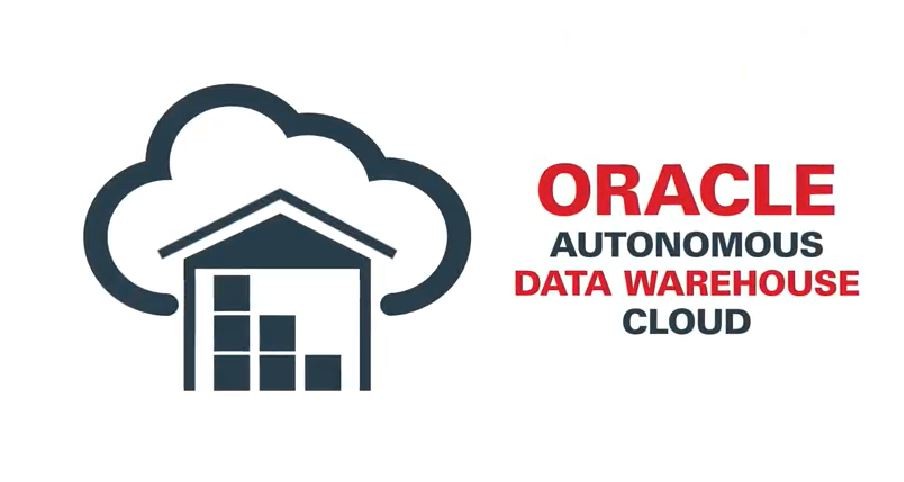
Oracle Autonomous Data Warehouse is a cloud-based solution that has numerous built-in tools for data analysts, scientists, and developers. These tools assist you with data loading and transformation, enabling queries across different data types, creating business models through machine learning analysis, and generating insights.
Features
- Elastic and Auto Scaling: You get the flexibility to scale CPU and IO resources to match increased workload demands. Additionally, this data warehouse automatically expands storage capacity, ensuring optimal database performance and no downtime.
- Ease in Migrating Databases: You can seamlessly migrate data from a number of databases, which include MySQL, Amazon Redshift, and PostgreSQL, to Oracle Autonomous Data Warehouse using the Oracle Cloud Infrastructure Database Migration Service.
- Extensive Support: With this data warehouse, you will get access to a host of automation cloud tools from Oracle, like Oracle GoldenGate Marketplace, Oracle Analytics Cloud, and more. There is support for third-party data integration tools and connectivity through SQL Net, JDBC, and ODBC.
7. Teradata VantageCloud
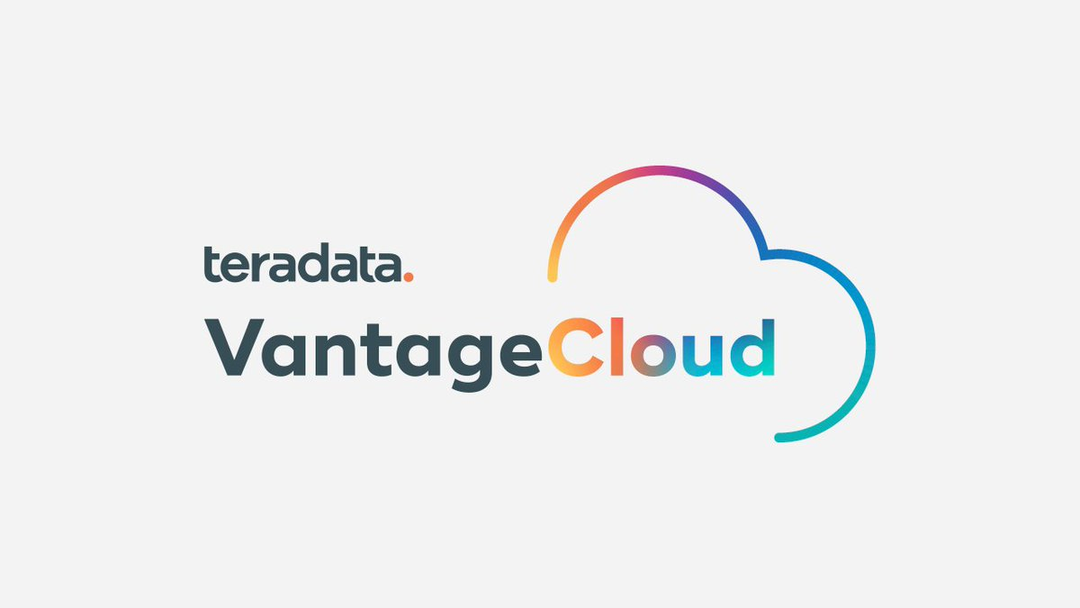
Teradata VantageCloud is a cloud analytics platform known for being an all-encompassing solution. It offers you an extensive range of data management solutions, including data warehouse tools and applications.
Features
- Unified Data Analytics Environment: This comprehensive data warehouse integrates descriptive, predictive, and prescriptive analytics functionalities into a single platform. You can also incorporate autonomous decision-making capabilities, machine learning, and visualization tools within this unified environment.
- Connectivity to Several Languages: You enjoy the flexibility to easily connect with tools and programming languages like R, Python, RStudio, Teradata Studio, and any SQL-based tools.
- Risk Mitigation: Teradata VantageCloud offers risk mitigation solutions by utilizing advanced analytical techniques to analyze patterns and signals within your dataset. Thus, you can comprehensively evaluate potential risks and align your risk management strategies effectively.
8. SAP Datasphere
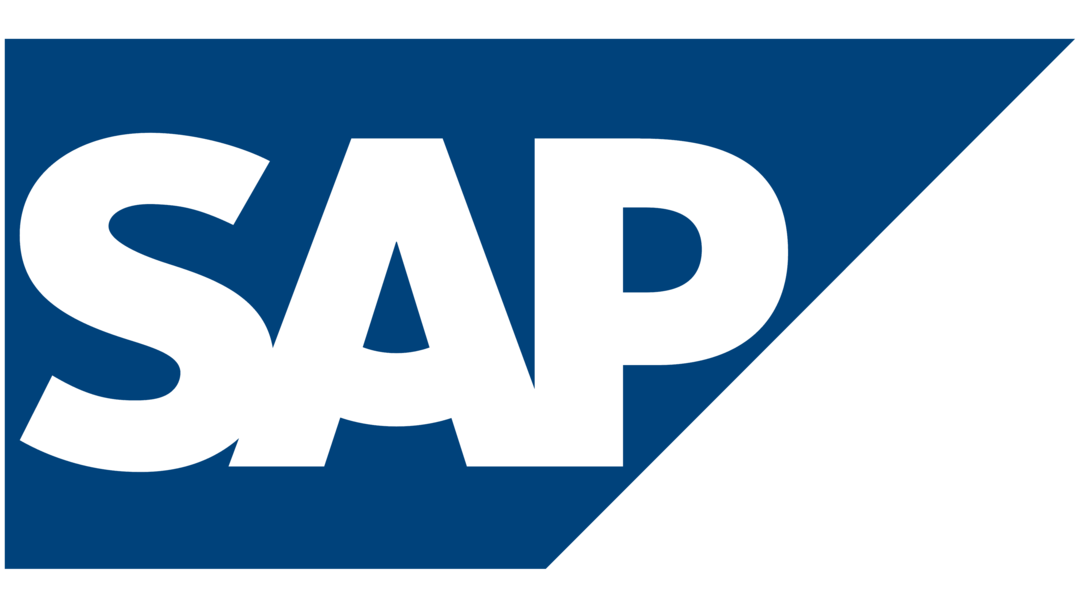
SAP Datasphere is one of the premier data warehouse tools built upon SAP Data Warehouse Cloud. This highly adaptable solution draws its foundation from the robust in-memory power of the SAP HANA Cloud database. It is structured in a modular architecture with semantic modeling features for simplified setup and optimal use of resources.
Features
- Business Data Fabric: This is one of the best and unique features of the SAP Datasphere. The open data ecosystem of SAP Datasphere creates a business data fabric that allows you to deliver valuable data to every consumer within your business. This feature enables stakeholders to access meaningful and contextualized data, fostering better decision-making.
- Automation Tools: SAP Datasphere comes with a generative AI-based code development with Joule Copilot, specifically tailored for Java and JavaScript application development. With this feature, you can benefit from automated code generation, intelligent suggestions, and an optimized project development lifecycle.
- Integration Suite: SAP Integration Suite is an integration platform-as-a-service (iPaaS) that facilitates the easy integration of on-premise and cloud-based processes. This suite will be useful in expediting innovation through smoother data flows and enhanced collaboration between different applications.
9. Firebolt

Firebolt is a cloud data warehouse that delivers swift query performance. At its core, a robust SQL query engine segregates the storage and computing functionalities. While optimized for structured data, modern data warehouses like Firebolt are increasingly capable of handling diverse data types, complementing specialized NoSQL solutions. Firebolt can provide you with numerous isolated resources within a unified environment, ensuring efficient and flexible operations.
Features
- SQL Supremacy: If you are proficient with SQL, your transition to Firebolt will be quite simple. This cloud data warehouse tool has a PostgreSQL dialect and complies with ANSI-SQL standards. You can scale operations through SQL commands and integrate orchestration tools like Apache Airflow to manage your workloads better.
- Order-of-magnitude Leap: Firebolt has engineered an order-of-magnitude leap in performance where you can load raw data stored in Parquet, JSON, and Avro file formats. To efficiently analyze vast volumes of semi-structured data, this petabyte-scale platform allows you to perform SQL array manipulations through native Lambda functions.
- Superior Performance: Firebolt has a unique decoupled architecture that facilitates seamless horizontal scaling. Here, you can leverage a range of node types and scale the infrastructure from 1 to 128 nodes within seconds.
10. Yellowbrick Data Warehouse

The Yellowbrick Data Warehouse is a fully elastic data warehouse designed to meet diverse workloads. It employs a massively parallel processing (MPP) SQL database to efficiently handle batch, real-time, ad hoc, and mixed workloads. This cloud data warehouse supports AWS, Google Cloud, Azure, and on-premises.
Features
- Independent Instances: Each instance generated within this data warehouse runs independently. Thus, there is no shared metadata or a single point of failure, eliminating global outages and ensuring resilience in data operations.
- Direct Data Accelerator Architecture: Yellowbrick’s proprietary Direct Data Accelerator Architecture employs an OS bypass technology that boosts the in-memory analytics performance. This infrastructure does not rely on a conventional database buffer cache, saving valuable space and resulting in predictable response times and lower data costs.
- SQL-driven Elasticity: Yellowbrick has distinct storage and computing capabilities. The virtual compute clusters (VCCs) can be created, resized, and dropped as needed using SQL commands. You have the flexibility to route ad hoc and critical workloads to different clusters for parallel processing and create more clusters whenever demand arises.
Importance of Cloud Data Warehouse Tools
Cloud data warehouse tools play a crucial role in modern data-driven organizations by enabling efficient data storage, management, and analysis. These tools offer a wide range of features and capabilities, including data integration, transformation, and visualization, allowing organizations to extract actionable insights from their data assets. Moreover, cloud data warehouse tools provide scalability, reliability, and cost-effectiveness, making them essential for organizations looking to harness the power of data to gain a competitive edge in today's digital landscape.
Integration of Cloud Data Warehouse Tools with Airbyte
After going through some of the best cloud data warehouse tools, you must have understood how crucial it is to choose the right one for your business. However, before selecting one, you must assess your business requirements and the data type you are dealing with.
If you have large datasets spread across multiple sources, there is a straightforward way to load them onto the data warehouse tool of your choice. Data integration and replication platforms like Airbyte seamlessly migrate data from different source points through connectors.
On this no-coding platform, you can find pre-built connectors for almost all the data warehouses mentioned above. If you do not see a connector among their 600+ catalog, you can always build a custom one with the help of their Connector Development Kit. With this guide, you can establish the source and destination of your database in just a few minutes!
Save time on data extraction and setting up data pipelines by signing up with Airbyte today!
Final Takeaways
Cloud-based data warehouse and automation tools are fast, highly scalable, and most available on a pay-per-use basis. They improve access to information through quick query responses and allow you to perform data analysis to get deeper insights. With a multitude of choices available, be sure to consider costs, data security, performance, and ease of use before finalizing one.
Data Warehousing tools are critical to your business as they help you manage data analytic processes to drive the workflow. If you are looking for a cloud data warehouse with automation tools, this article will give you a quick overview of some options available. It is important to note that the list is in no particular order or ranking.
FAQs
What are the key advantages of using cloud data warehouse tools over traditional on-premises solutions?
Cloud data warehouse tools offer scalability, flexibility, and cost-effectiveness compared to traditional on-premises solutions. They enable organizations to easily scale their data storage and processing capabilities as needed, without the need for expensive hardware investments. Additionally, cloud data warehouses provide built-in redundancy and disaster recovery features, ensuring data availability and reliability.
How do I choose the right cloud data warehouse tool for my organization's needs?
Selecting the right cloud data warehouse tool involves considering factors such as scalability, performance, integration capabilities, pricing, and security features. Evaluate each tool's strengths and weaknesses in relation to your specific use case and business requirements. Conduct thorough research, seek recommendations from peers, and perform proof-of-concept tests to inform your decision-making process.
What are the pricing models for cloud data warehouse tools?
Pricing models for cloud data warehouse tools vary among providers and may include factors such as storage capacity, data transfer volume, compute resources, and additional features or services. Some providers offer pay-as-you-go pricing, while others may require upfront commitments or offer tiered pricing plans. Carefully review each provider's pricing structure and consider your organization's budget and anticipated usage patterns when making a decision.
Can cloud data warehouse tools handle real-time data processing and analytics?
Many cloud data warehouse tools support real-time data processing and analytics capabilities, allowing organizations to analyze streaming data and derive insights in near real-time. Leveraging technologies such as in-memory processing, distributed computing, and event-driven architectures, these tools enable fast and efficient data processing. Real-time analytics is beneficial for applications such as fraud detection, IoT data analysis, and personalized customer experiences.
What security measures are in place to protect data stored in cloud data warehouses?
Security is a top priority for cloud data warehouse providers, who implement measures such as encryption at rest and in transit, access controls, data masking, threat detection, and compliance certifications to protect stored data. Additionally, providers offer tools and services to help organizations monitor and manage security risks effectively. It's crucial for organizations to understand the security features and compliance standards of their chosen cloud data warehouse provider and implement best practices to protect their data.
Suggested Reads
What should you do next?
Hope you enjoyed the reading. Here are the 3 ways we can help you in your data journey:




.webp)